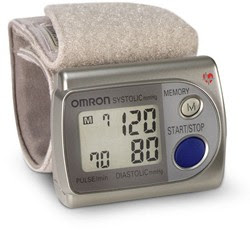Tech support: What kind of computer do you have?
Customer: A gray one.
Customer: Hi, I can't get my diskette out.
Tech support: Have you tried pushing the button?
Customer: Yes, sure, it's really stuck.
Tech support: That doesn't sound good; I'll make a note.
Customer: No, wait a minute. I hadn't inserted it yet; it's still on my desk. Sorry.
Tech support: Click on the 'My Computer' icon on the left side of the screen.
Customer: Your left or my left?
Tech support: Good day. How may I help you?
Customer: Hello. I can't print.
Tech support: Would you click on 'Start' for me and...
Customer: Listen pal; don't start getting technical on me! I'm not Bill Gates!
Customer: Hi, I can't print. Every time I try, it says 'Can't find printer'. I've even lifted the printer and placed it in front of the monitor, but the computer still says it can't find it.
Customer: I have problems printing in red.
Tech support: Do you have a color printer?
Customer: Oh.... thank you.
Tech support: What's on your monitor now, ma'am?
Customer: A teddy bear my boyfriend bought for me in the supermarket.
Tech support: Your password is the small letter 'a' as in apple, a capital letter 'V' as in Victor, and the number '7'.
Customer: Is the 7 in capital letters?
Customer: I can't get on the Internet.
Tech support: Are you sure you used the right password?
Customer: Yes, I'm sure. I saw my colleague do it.
Tech support: Can you tell me what the password was?
Customer: Five stars.
Customer: I have a huge problem. A friend put a screen saver on my computer, but every time I move the mouse, it disappears.
Tech support: How can I help you?
Customer: I'm writing my first e-mail.
Tech support: Ok, and what seems to be the problem?
Customer: Well, I have the letter 'a' in the address, but how do I get the circle around it?
A woman customer called the Canon help desk about a problem with her printer.
Tech support: Are you running it under Windows?
Customer: No, my desk is next to the door, but that is a good point. The man sitting in the cubicle next to me is under a window, and his printer is working fine. » Continue reading
Read more on Humour

 Look into "me too" brands. Brand names often rule drug prices. For instance, the antibiotic ofloxacin marketed under the brand name Tarivid, is priced at Rs.53.14 per 400mg tablet; as Oflin it costs Rs.14. But as Floxur, it costs just Rs.9.60 per tablet! Ask chemists for less expensive alternatives. "But buying the cheapest," warns Dr Satbir Singh of New Delhi's Govind Ballabh Pant Hospital, "may not always be safe, since quality can vary." So, consult your doctor too.
Look into "me too" brands. Brand names often rule drug prices. For instance, the antibiotic ofloxacin marketed under the brand name Tarivid, is priced at Rs.53.14 per 400mg tablet; as Oflin it costs Rs.14. But as Floxur, it costs just Rs.9.60 per tablet! Ask chemists for less expensive alternatives. "But buying the cheapest," warns Dr Satbir Singh of New Delhi's Govind Ballabh Pant Hospital, "may not always be safe, since quality can vary." So, consult your doctor too. Your blood pressure read at a clinic provides a somewhat blurry snapshot of this temperamental measure. Worse, many people get white-coat hypertension -- their pressure jumps in a doctor's office! For a clearer picture, you need to take a series of readings -- a must for people with hypertension and those at risk of developing it.
Your blood pressure read at a clinic provides a somewhat blurry snapshot of this temperamental measure. Worse, many people get white-coat hypertension -- their pressure jumps in a doctor's office! For a clearer picture, you need to take a series of readings -- a must for people with hypertension and those at risk of developing it. Exercise -- and you are better person. That's what university students thought when they rated characteristics of people they believed worked out. In a recent study, the students read profiles of fictional subjects described as "average looking." Some were supposedly exercisers and some non-exercisers -- but in other ways identical. Exercisers got higher rating for strength, health and attractiveness as well as for confidence, self-control, independence and hard work.
Exercise -- and you are better person. That's what university students thought when they rated characteristics of people they believed worked out. In a recent study, the students read profiles of fictional subjects described as "average looking." Some were supposedly exercisers and some non-exercisers -- but in other ways identical. Exercisers got higher rating for strength, health and attractiveness as well as for confidence, self-control, independence and hard work. By the time Debbie Clark took Adam, her autistic three year-old son, to a music therapist, he could barely speak. At the music-therapy clinic at California State University in Northridge, USA, therapists encouraged the autistic child to express himself by playing instruments and beating out rhythms on drums. They put conversations to song in order to get Adam talking.
By the time Debbie Clark took Adam, her autistic three year-old son, to a music therapist, he could barely speak. At the music-therapy clinic at California State University in Northridge, USA, therapists encouraged the autistic child to express himself by playing instruments and beating out rhythms on drums. They put conversations to song in order to get Adam talking. Visiting a friend or relative in the hospital? Here is a list of gifts a patient will love you for.
Visiting a friend or relative in the hospital? Here is a list of gifts a patient will love you for.